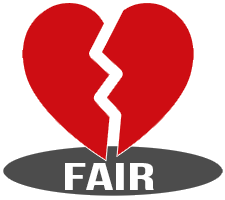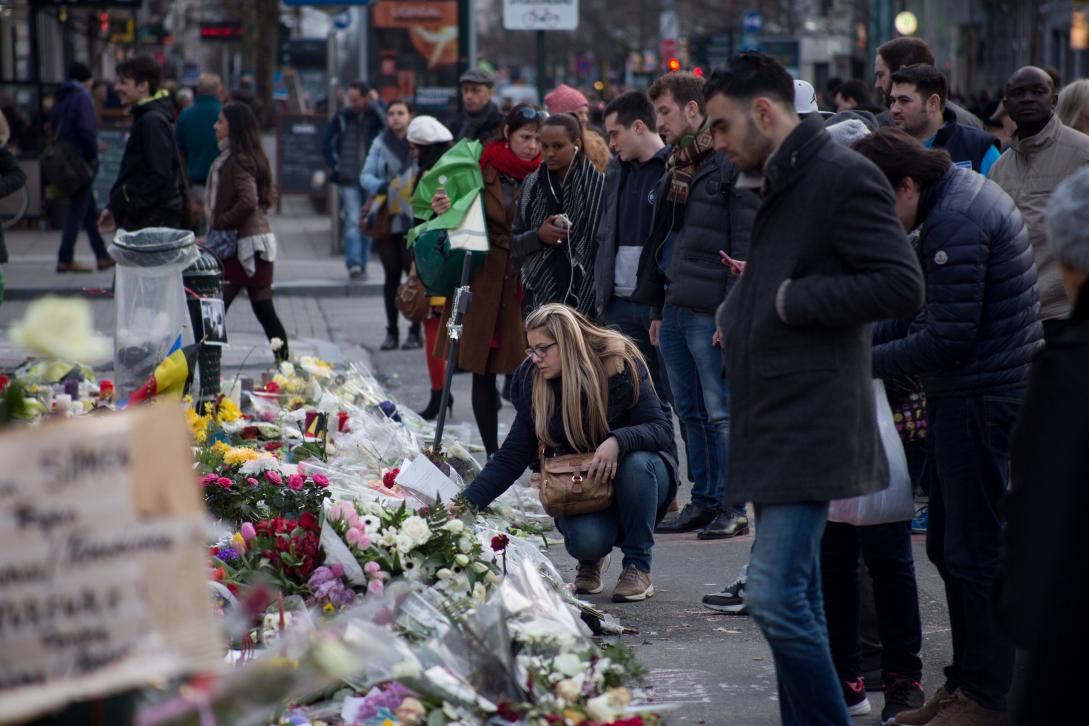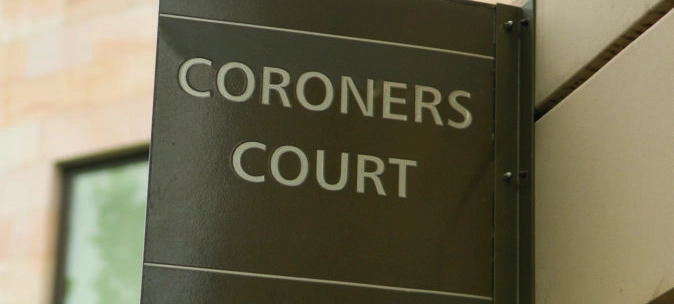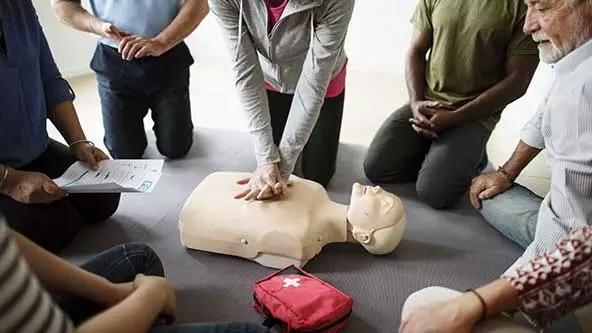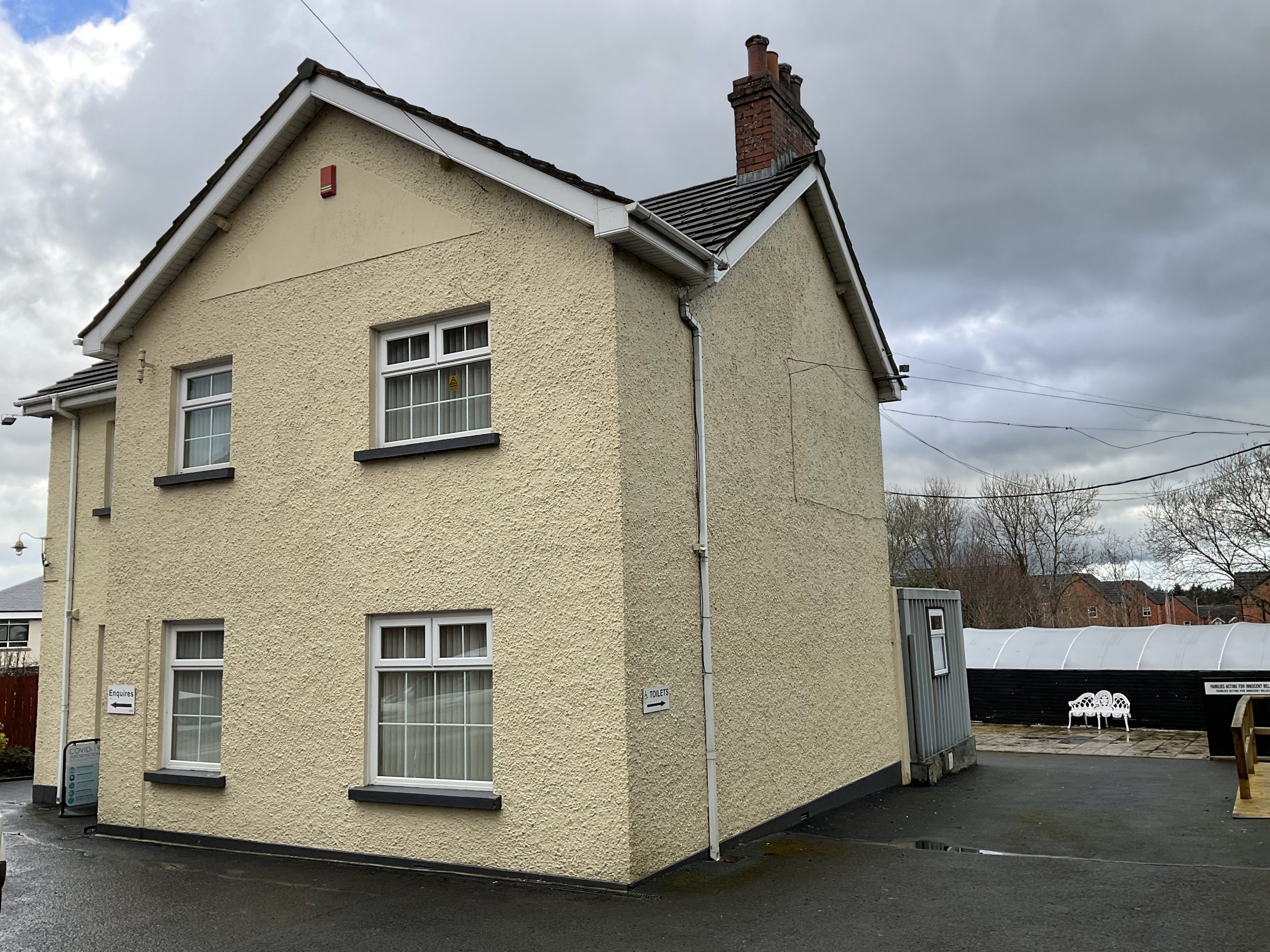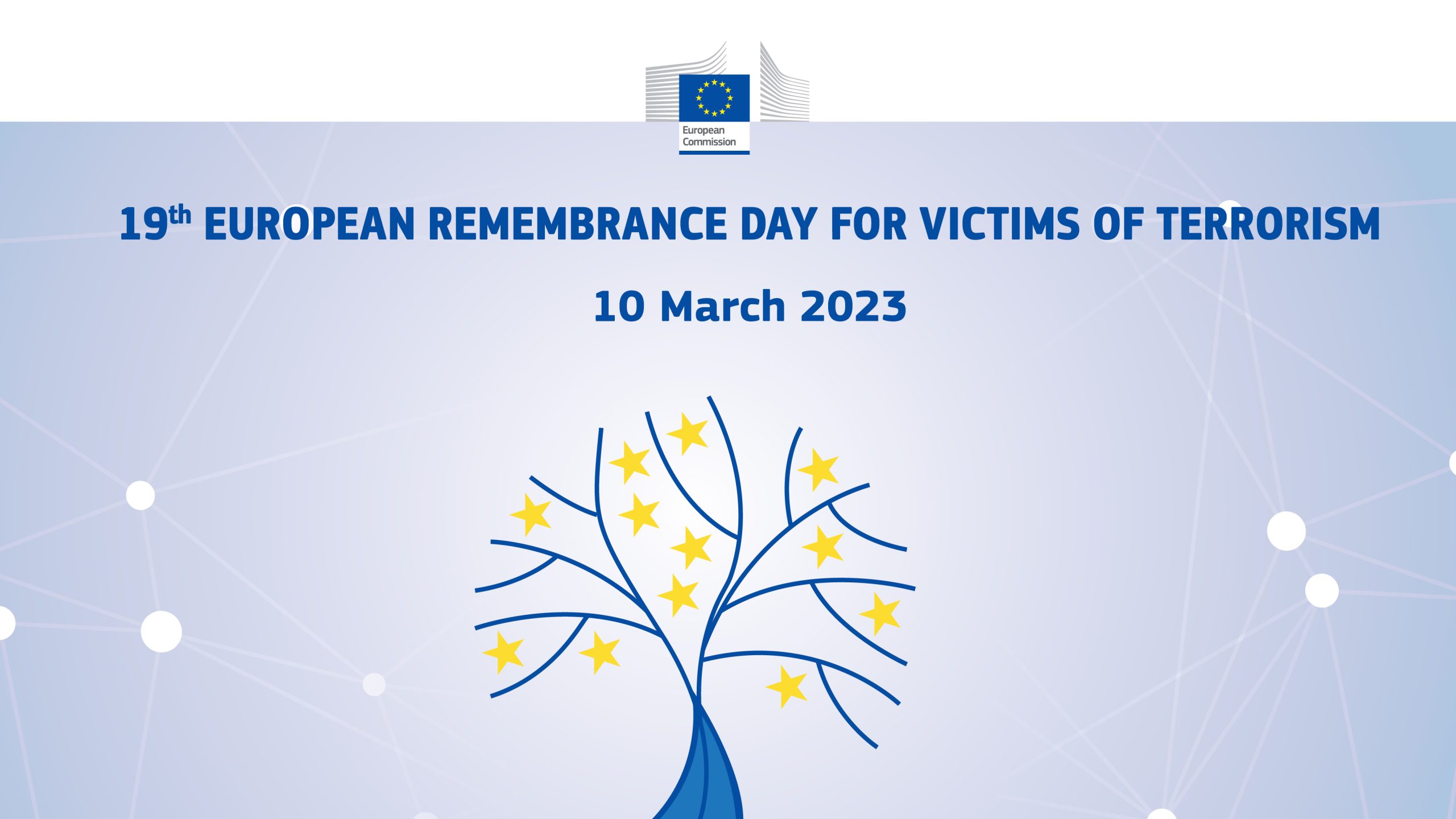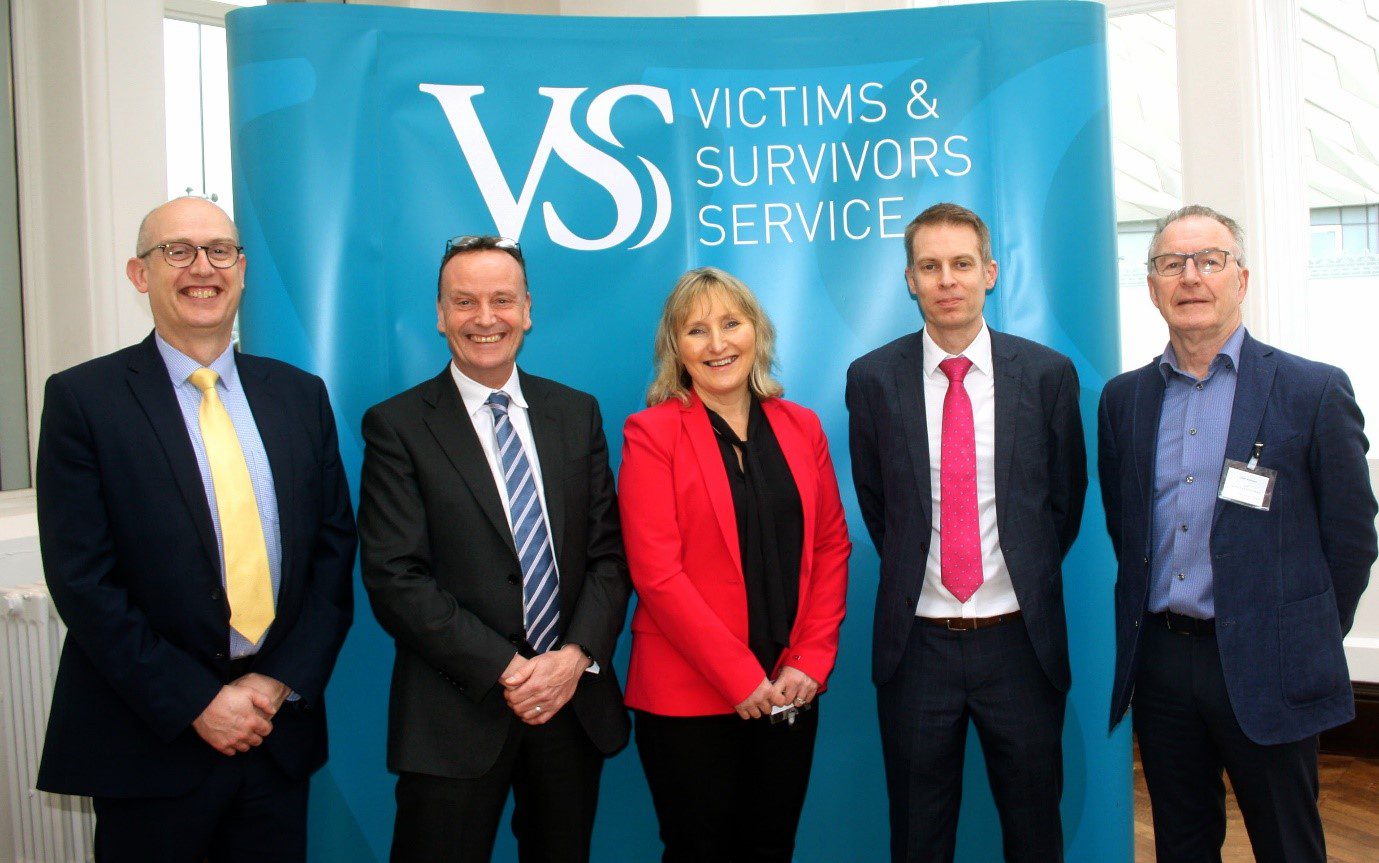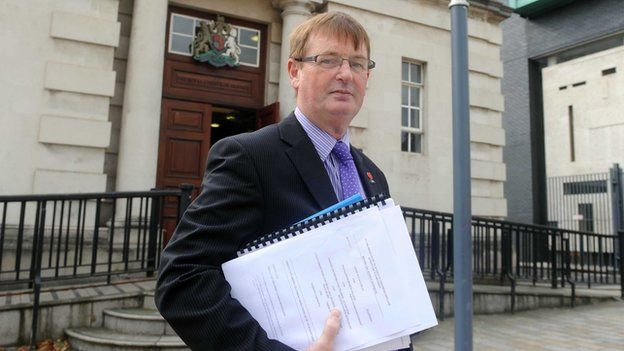Truth will set Us Free
01/04/2023News,STORIES,Counter-Terrorism
FAIR has pioneered the concept of Counter-Narratives to Counter Terrorism. This means giving victims a voice and letting them challenge to propaganda and false narratives which are used to radicalise young people and recruit them to support terrorism. By supporting victims to tell their stories we can break the cycle of violence and support for terrorist groups. Terrorism uses a narrative which dehumanises their victims, portraying them as a uniform, or a representative of a state when in reality they are human beings with lives and rights and dreams which are often cruelly ended in the pursuit of a terrorist agenda.
Victims who know the true cost of conflict want to prevent it, and see their stories as the key to countering the false narratives of terrorism. Our truth will set us free from the chains of terrorism and unlock a peaceful future for all. FAIR has always provided a platform for victims to tell their stories, to show the real human face of conflict and the true cost of terrorism. We have worked with victims groups across the globe who share this vision and many important projects have been developed and have built real peace in our time.
The C4C Project, the terrorism survivors’ storytelling, is a global platform for resilience stories and radicalisation awareness. It is a cross national project, supported by the European Commission – DG Home Affairs (ISEC program), started at the beginning of 2013, involving several private, no-profit and public partners, but open to the collaboration of other interested subjects.
The project aim – through ‘The terrorism survivors storytelling’ web platform – is to spread the stories of the victims to the general public and to specific target groups, by collecting, categorizing and giving e-collaborative tools and additional resources for the practical use of these narratives – for example, in educational programs for students and young adults, to empower people with a critical thinking toward hate narratives, or to prevent people from becoming attracted by or permissive towards violent movements, or to de-radicalize people engaged into a radicalisation pathway.
The project is proceeding along three main procedures:
1) The selection, cataloguing, digitization of the materials that contain survivors stories and testimonies, retrieved through the Italian and French associations of victims of terrorism with the availability of other European associations;
2) The design and development of a multilingual platform (The Terrorism Survivors Storytelling) that contains the archive (Global data-base) of the selected materials files. Some of these will be made directly available in their various forms of text, video, photos (Multimedia deposit). That digital material will be used for digital storytelling activity to create new communication/didactic products through the e-collaborative tools, currently on the platform. Furthermore the platform will offer some selected didactic and methodological resources to help its practical usage at the ground floor carried on by practitioners, teachers, tutors for educational/prevention/de-radicalization programs.
3) The enhancement of the strategic value of the C4C project and dissemination of its achieved results during the first two years of its life. A specific target will be a group of students in Italy and France who are going to test the platform and its e-collaborative tools.
Following the Football
23/03/2023News,Events-Activities
A great night was enjoyed by all ages at the National Stadium - Windsor Park. As off-side rules were explained and famous players of yesteryear debated the group had a real lesson in football. The tour of the grounds and then the match was a real high point for many.
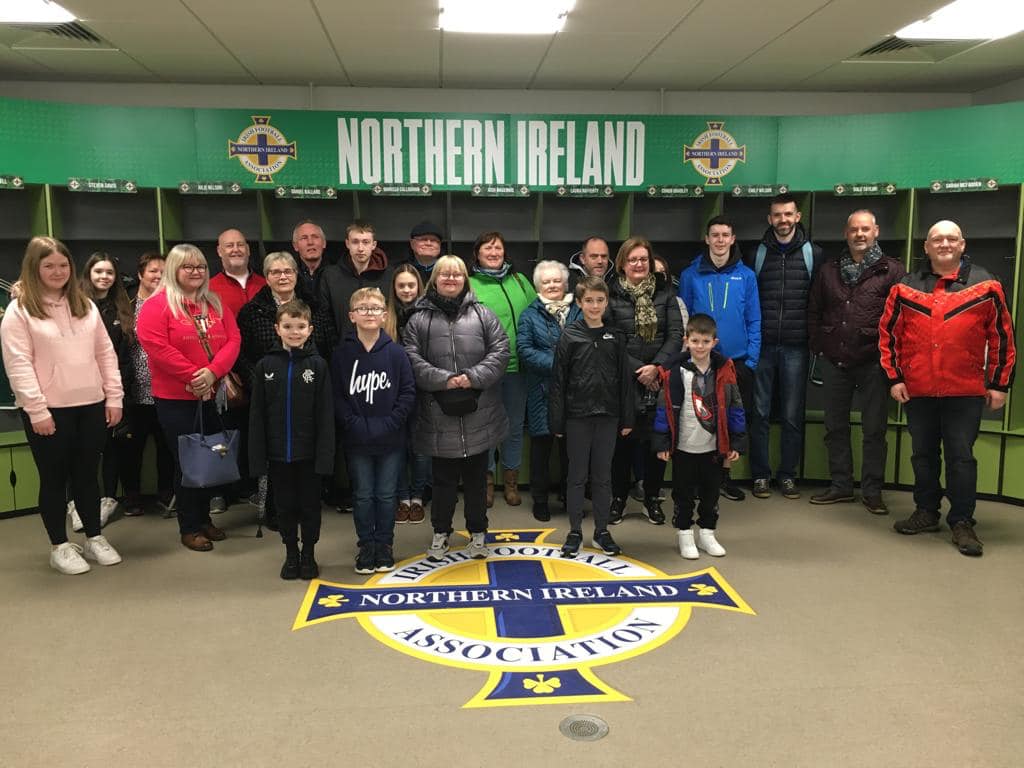
Introduction to Inquests
One important aspect of the support FAIR provides is to families as they engage with the criminal justice system. Sadly many families have never seen justice and for those who do get a taste of it find it a leaves a very bitter taste. The role of FAIR has evolved over the years from taking a leading role in justice and human rights work in many pivotal cases to today providing the support and care to those who seek justice. Behind the headlines we deal with the heartache and with the practical support and care needed to equip victims to engage with the criminal justice system. They have often waited decades and the process they encounter can often re-traumatise them. Weeks of attendance at court, the disclosure of painful details around the murder of their loved ones and the frustration of seeing those responsible often escape justice takes it toll.
Our work is often behind the scenes, preparing victims and families for this process, managing their expectations and giving them a listening ear and a range of support as they proceed. The first step for many is to engage with the Police or other legacy investigative processes. Then a Coroners Court will hold an Inquest. An inquest is an inquiry into the circumstances of a death. The purpose of the inquest is to find out who the deceased person was and how, when and where they died and to provide the details needed for their death to be registered. It is not a trial. It is not for the Coroner to decide, or appear to decide, any question of criminal or civil liability or to apportion guilt or attribute blame.
The average time families have waited for a conclusion to adjourned inquests is 20 years and seven months. Many of the reopened inquests waiting to be heard concern deaths that occcurred as far back as 1971. The majority of the cases have not led to prosecutions. Many inquests were opened shortly after the deaths happened but were adjourned and never concluded, while half were reopened in recent years on the orders of John Larkin QC, the then attorney general of Northern Ireland, following complaints that the original hearings were fundamentally unfair.
In February 2019 the Lord Chief Justice, Sir Declan Morgan, issued the following statement in response to the announcement by the Department of Justice that funding is to be made available for legacy inquests commencing in April 2019:
“On 12 February 2016 I proposed a plan for dealing with what have now come to be known as the “legacy inquests”. Legacy inquests have an impact on bereaved families, those who have served in the police and armed forces, other state agencies; and very often the wider communities in which these deaths occurred.
I am pleased that funding is now going to be provided to implement the plan for dealing with legacy inquests which I proposed over three years ago. There is clearly a great deal of preparatory work to be done to establish the Legacy Inquest Unit and deliver my plan. During this preparatory period, it will be important to engage with all the relevant agencies and parties who will have to play their part in ensuring that the outstanding inquests can be completed within a five year period once the unit has been established.
While the preparations for the Legacy Inquest Unit are ongoing, I expect that there will be a further Judge-led review to follow up on the work undertaken by Lord Justice Weir when he carried out a comprehensive review of these cases in February 2016. We anticipate this review will be completed before the summer recess.”
Sadly progress has been slow and the entire process has become politicised. In the case of the Kingsmills Inquest families has been continually denied access to information and have lost faith in the process. This experience has caused more suffering and during it many victims have passed away before they can see the truth established. Through all of this FAIR has provided support and care giving victims the strength to continue.
One of our important roles is to provide information to victims and families as they engage in the criminal justice system. That ranges from basis advice and orientation about what they can expect through to complex legal advice and support. Often an explanation of what an Inquest is will help manage expectations and avoid disappointment. A sample of the information we provide is included below.
Inquests
An inquest is an inquiry into the circumstances surrounding a death. The purpose of the inquest is to find out who the person was and how, when and where they died, and to find out the details the Registrar of Deaths need to register the death.
An inquest is not a trial. It is not the role of the Coroner to decide any question of criminal or civil liability or to apportion guilt or attribute blame.
Once the Coroner’s investigation into a death is complete, the Coroner will decide if an inquest is to be held. This can take some time to complete and is dependent on the circumstances of the death and the final report of the postmortem examination.
If the Coroner is informed that someone has been charged with an offence directly linked to the death, the inquest or a decision on whether to hold and inquest, will not be made until the criminal proceedings end.
If an inquest is to be held a date will be arranged in consultation with the family. Inquests are open to the public and the media.
Coroners decide who should give evidence as witnesses at an inquest. Witnesses will first be questioned by the Coroner, and there may be further questions by ‘properly interested people’ or their legal representatives. Person’s with a ‘proper interest’ include:
- relatives of the deceased
- the executor(s) of the deceased’s will or a person appointed as the deceased’s personal representative
- solicitors acting for the next of kin
- insurers with a relevant interest
- anyone who may, in some way, be responsible for the death
- others at some special risk or appearing to the Coroner to have a proper interest
The findings of an inquest will record the essential facts about the means by which the deceased came by his or her death.
Coroners Inquest (PDF) - Northern Ireland Court Service Online
FAIR First Aid
17/03/2023SERVICES,News,Future
First Aid Courses are an important part of FAIR’s yearly calendar, providing useful training for people from all types of workplaces. It is useful for employees, employers, young people and parents and is a must for everyone in the community, as you never know when you will need it.
FAIR hopes to run a number of these courses on demand, so speak to one of the team today to find out the next opportunity and book early to ensure your place.
FAIR have just been able to purchase a Defibrillator through funding by ABC council and 9 members received First Aid training on Monday 20th March. This is a very important piece of equipment and saves lives. It will be placed at Mount Pleasant House , 18 Mowhan Road at their premises where they are able to hold large gatherings during the summer and even during winter evenings.
Living Memorial Centre Development
17/03/2023SUPPORT,Multi-Media,Publications,Policy,Research,SOURCES,Consultations,Compensation,Counter-Terrorism,Courts,Campaigns,Commemoration,Cat 1,Communities,Casualties,Civilians,Constabulary,Crown Forces,Citizen Soldiers,STORIES,Drop In,News,Cat 2
AS FAIR marks its 25th Anniversary they have launched an exciting new Living Memorial Centre Development project. Over 15 years ago the group secured premises in Markethill. In what was the school masters house the group developed the first phase of their Living Memorial centre with a reception and administrative hub, meeting room and multi-purpose space, with kitchen. On the first floor an IT suite, and officers were developed. A memorial garden with a marble memorial funded and designed by friends and supporters on the mainland became the centrepiece with a place for victims to reflect and remember.

The group quickly outgrew the building and as new projects and activities were launched a number of temporary offices were placed on site. Over the last decade the group continued to develop the main building with an extended kitchen and disabled access toilets and storage. However as FAIR looked to its first quarter century one of the key priorities was a major development project to modernise and make their centre fit for the future. As members views were canvassed and professional advice Slough the project took shape with a range of new facilities and multiple-purpose spaces envisaged.
Meetings have already begun with the design team and the committee is turning its attention to fundraising. The ambitious target of £250,000 has been set - £10,000 for every year that FAIR has been in existence. The vision for the centre as a 'living memorial' remains strong and guides the group. It see the centre as a place of safety and support. FAIR has developed their facility at Mount Pleasant House as
An accessible, safe, friendly supportive and well resourced facility where victims can—
-
Remember loved ones they have lost as a result of the past thirty years of terrorism.
-
Meet and share within a social setting where they can share their experiences
-
Access professional services to help them deal with their physical and mental trauma,
-
Develop the skills, confidence and capacity needed to move on with their lives,
-
Receive the support, advocacy and care they deserve from the group they created
-
Deal with the Past and provide their interpretation of it in a positive way
-
Reintegrate into the community forming practical partnerships that benefit all
-
Become a valued group in society playing a full role in building lasting, genuine peace
Learning to Save Lives
As part of the wider training and health & well being work of the group we have invested in equipment and training which will save lives. FAIR has a heart not just for victims but the wider community and our defibrillator and training will provide life saving services to the whole community.
FAIR have just been able to purchase a Defibrillator through funding by ABC council and 9 members received First Aid training on Monday 20th March. This is a very important piece of equipment and saves lives. It will be placed at Mount Pleasant House , 18 Mowhan Road at their premises where they are able to hold large gatherings during the summer and even during winter evenings.
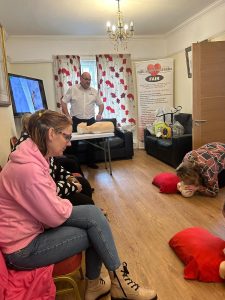
European Memorial Day for Victims of Terrorism 2023
11/03/2023Cat 1,Events,News,Commemoration,Campaigns,Counter-Terrorism
United in Remembrance: FAIR Group Attends European Memorial Day for Victims of Terrorism in Belfast
Introduction: In a poignant and heartfelt gathering, the FAIR Group is set to attend the European Memorial Day for Victims of Terrorism at the historic La Mon Hotel in Belfast. As we come together to remember and honor those who have suffered the profound impacts of terrorism, this event stands as a symbol of solidarity, resilience, and the enduring pursuit of justice. The La Mon Hotel, echoing with the shared stories of survival and loss, becomes a space for remembrance and a testament to the strength of those who have faced the harsh realities of terrorism.
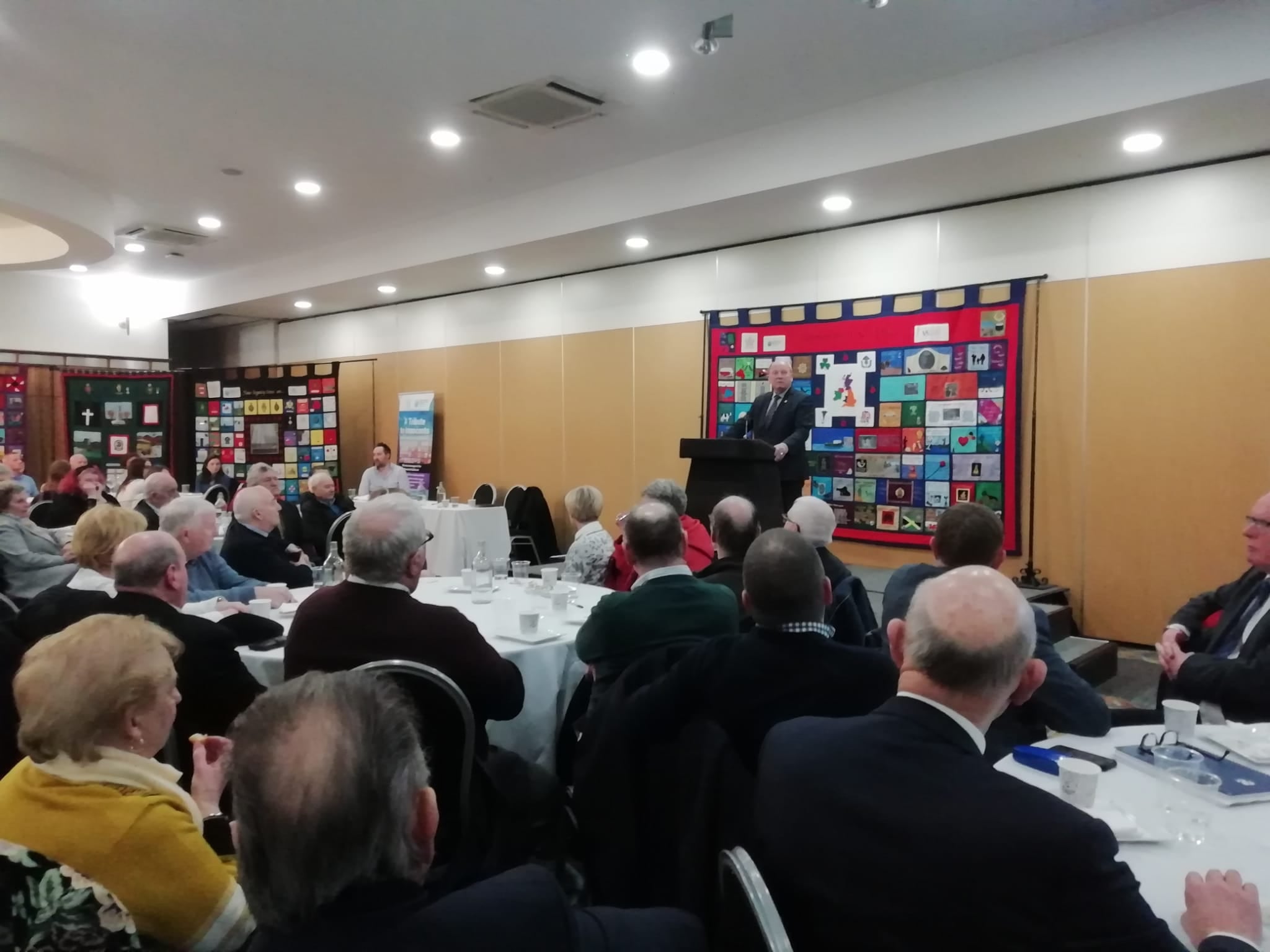
A Gathering of Compassion: The European Memorial Day for Victims of Terrorism is a significant occasion that unites people from all walks of life, transcending borders and cultures. This year, the FAIR Group is proud to stand among those who share a common commitment to acknowledging the pain and hardship experienced by victims of terrorism throughout Europe.
As attendees gather at the La Mon Hotel, there is a shared understanding that the impact of terrorism is profound and far-reaching. The event is not just a memorial but a powerful demonstration of solidarity, a coming together of survivors, families, and advocates to collectively address the challenges faced by those affected.
La Mon Hotel: A Symbolic Venue: The choice of the La Mon Hotel as the venue for this significant event adds a layer of historical significance. The hotel, which itself experienced a tragic bombing in 1978, serves as a powerful reminder of the devastating consequences of terrorism. The scars of that event are still visible, making it a poignant location for the FAIR Group and others to pay their respects and reflect on the broader impact of terrorism on individuals and communities.
Honoring the Stories of Resilience: Throughout the day, attendees will have the opportunity to share their stories, experiences, and memories. The FAIR Group, with its commitment to fairness, accountability, integrity, and respect, brings a unique perspective to the event. Members will not only stand in solidarity with victims but also contribute to the ongoing dialogue about the importance of supporting those affected by acts of terrorism.
Speeches, testimonials, and moments of reflection will weave together a narrative of resilience, emphasizing the strength and courage of survivors. By participating in this collective remembrance, the FAIR Group aims to amplify the voices of those who often go unheard and foster a deeper understanding of the long-lasting effects of terrorism.
A Call to Action: As the day unfolds, it is not just a time for reflection but also a call to action. The FAIR Group, alongside other attendees, will renew their commitment to advocating for policies that prioritize the needs of victims and promote a society free from the specter of terrorism. By standing together, we affirm our shared responsibility to work towards preventing future tragedies and creating a world where no one has to endure the pain caused by acts of terror.
Conclusion: The European Memorial Day for Victims of Terrorism at the La Mon Hotel is not just an event; it is a testament to the strength of the human spirit. As the FAIR Group participates in this solemn gathering, we are reminded that through unity and compassion, we can build a future where the shadows of terrorism are replaced with the light of justice, empathy, and resilience. May this day serve as a catalyst for positive change and a beacon of hope for all those impacted by acts of terrorism across Europe.
VSS Reflect on PEACE IV Programme
The Victims and Survivors Service (VSS) celebrated the success of a £15 million project to improve the health and wellbeing of victims and survivors, on Tuesday 21 February, at the Titanic Hotel, Belfast.
Welcomed by the Chair of VSS Board Oliver Wilkinson the event began with reflections by Paul Sheridan from SEUPB. VSS CEO Andrew Walker gave a comprehensive overview of the Key Achievements of the project, and the Commissioner for Victims and Survivors, Ian Jeffers, outlined the research undertaken during Peace IV. Representatives from WAVE Trauma Centre, and SEFF gave an insight into the experiences of victims and survivors by sharing project case studies. REACT showed videos demonstrating the impact of PEACE IV Resilience funding through the development of an allotment project.
VSS is currently working with its community partners to develop a Peace Plus application which will be submitted to SEUPB in late spring with the aim of further developing and building on the success of the health and well-being and advocacy networks established under Peace IV.
The project which began in 2017, was supported by the , managed by the Special EU Programmes Body, with the aim of supporting marginalised individuals and communities impacted by the Troubles/conflict.
Over the course of the project, the VSS, in partnership with a range of community and voluntary sector organisations, established a network of 26 Health and Wellbeing Caseworkers across Northern Ireland, Ireland, and Great Britain, with over 11,000 victims and survivors receiving health and wellbeing support, as well as a network of 27 Advocacy Support staff enabling over 4,000 victims and survivors to engage in Legacy processes.
Victims and survivors have also had the opportunity to engage in activities which sought to rebuild the social connections that were so negatively impacted by Covid-19 restrictions.
The project has also successfully provided training for over 900 individuals across 252 courses, working to improve the quality of services for victims and survivors.
The project’s funding allowed for important research to be undertaken, including reviews of both trauma and advocacy services, as well as research on the impact of conflict legacy across generations.
Notable achievements of the project identified by the VSS include improved mental health and social networks, renewed trust within communities and an overall improvement in quality of life for many victims and survivors.
Denis McMahon, Permanent Secretary of The Executive Office which supports victims and survivors through the VSS, said:
“The Executive Office is committed to raising awareness of and co-ordinating activity on issues affecting victims and survivors. With the Victims and Survivors Service and the Commission for Victims and Survivors, we work towards putting the right arrangements in place to ensure trauma informed and victim centred services are available to empower and support victims and survivors and improve their health and wellbeing. That is why I am so pleased to be able to celebrate the successes of the Peace IV projects delivered by VSS and its partners. It has been a privilege to hear about the many ways in which the various
aspects of this project have improved the lives of victims and survivors, and TEO will continue to support this important work through our partnership with VSS.”
Minister for Rural and Community Development, Heather Humphreys TD, commented
“I am delighted to see that the Victims & Survivors Service (VSS) have successfully delivered a project that has improved the health and wellbeing of the many victims and survivors and in particular those hard to reach and marginalised individuals and communities that have suffered as a result of conflict.
The high-quality practical support, the positive relationships and independence that was built, as well as the trauma focused courses that were delivered, have provided participants with the tools and resources to live a much-improved quality of life.
I am delighted that my Department was able to provide match funding and support for the delivery of this very significant project. I want to congratulate the programme implementers, the project partners, the advisory partners, and all of the participants. I am sure the benefits of the tailored one-to-one supports and advice provided to participants under this project and the research undertaken, will provide policymakers, academics, and practitioners with the opportunity to engage and learn from project participants and in the development of further supports.
I am confident that the Victims and Survivors Service will continue their excellent work under the new PEACE Plus Programme that will further improve the health and wellbeing of those who have suffered as a result of the conflict and contribute to ongoing peace and reconciliation for generations to come.”
Gina McIntyre, Chief Executive of the Special EU Programmes Body, added:
“The shared history of our region has unfortunately left a legacy of trauma for many of our citizens.
The Victims & Survivors theme of the EU-funded Peace IV Programme was implemented to support individuals and families to address long term issues that have held them back. This theme has provided expertise and care in health and well-being services for participants. It is extraordinary, that some of the citizens assisted have only been able to recognise now , several decades later, that they have unknowingly been suffering from trauma for many years.
The project has faced significant challenges over its duration which is understandable given the sensitivity of the issues addressed and the circumstances of the last few years, however the research undertaken in the project will carry on improving the quality of life of for many in the years ahead. I would like to congratulate the Victims & Survivors Service for all that has been achieved over the life of the project.”
Andrew Walker, Interim Chief Executive of the VSS, said:
“The victims and survivors who we support have diverse and often complex needs, so this funding has allowed us to address each individual’s needs appropriately with bespoke needs-based support.”
“The encouraging testimonials and positive feedback from many individuals who have benefitted from the health and wellbeing and advocacy support through this project, points to the professionalism of all those providing support, and to their compassion and dedication.”
“We are so pleased with the success of this invaluable project under the European Union’s PEACE IV programme. It is one that has been crucial in improving the lives of many victims and survivors of our troubled past."
Living Memorial Centre Development
It is a part of our long term vision at FAIR to continue the development of our 'Living' Memorial Centre as a monument to the many innocent people murdered at the hands of terrorists in the south Armagh area. It is envisaged as a means by which the histories and memories of those innocent people who suffered and were killed in the troubles can be preserved and given their rightful honour.
To raise funds for the development of the centre we have a number of avenues to pursue. Please continue on to our funding page to find out how you can help. You can also donate online using a credit card. Just click here and follow instructions.
In this area particularly but throughout Northern Ireland the violence and terror of the troubles has disrupted and destroyed many lives. For all this suffering and pain experienced by so many there has as yet been no recognition shown either by the authorities or by those that inflicted it. Instead we have seen over these recent years the establishing of terrorists into the government and amnesties and releases of perpetrators in the name of progress and peace.
As victims we have been forgotten about for the sake of political expediency, but as the people who have suffered and lot the most during the troubles we feel our feelings and deprivations need to be addressed. We feel it is high time that what happened to us is remembered and recognised by all. This way we hope that we can all move on.
Our proposed Living Memorial Centre will comprise a number of facilities to serve many purposes. As its focus the center will have a Memorial Garden with the names of all the innocent victims of terrorist violence in Northern Ireland during the troubles engraved upon stone. This is to allow those who have lost loved ones to be able to reflect on their loss. It will also bring home to other visitors the great sacrifice made by so many to maintain law and order.
The centre will present a exhibition style chronology and display of the history of human rights abuse and atrocities that have taken place over the years in this area. It is our desire that this will be both educational and of interest to as wide an audience as possible. It is also to ensure that atrocities like these never go unnoticed again whereby instead of justice being delivered the Republican movement actually thrived using these atrocities for propaganda purposes, as we foolishly sat back and said nothing.
The center will contain a multi-functional hall providing the area with a facility capable of being used by the local community for sporting and social events. The center is also planned to provide I.T. tuition, a Human Rights Library, Counselling Service, Befriending Service, a youth outreach, disablement rehabilitation facilities and archives which will be of benefit to both the members of the group and the wider populace. It is to be a centre where victims can feel that they belong and where they will get support in their pursuit for justice.
To help build peace through education the majority of the people that were murdered by the terrorists received little and sometimes nothing by way of compensation. The very least that we can do is to try and remember them and help the next generation so they do not have to go through the same horrendous slaughter. It is not that we can replace the empty chairs at the dinner table but at the very least we can show their loved ones that their communities do care.
Please carry on to find out what you can do to help.
William Frazer
William Frazer - My Story
I grew up in the nationalist village of Whitecross, Co. Armagh. We were one of very few Protestant families living in the town and we had always got on well with our Catholic neighbours. I attended the local Catholic school because it was the closest and I can say that I was always treated well by the teachers. I played Gaelic football for a time but we never were involved in the Catholic religious practices which were pushed a great deal by the local priests upon all of us.
My father was a member of the security forces as was my next door neighbour. My Father had worked 30 years on the roads with the county council and his colleagues were all Catholics. some of whom later carried the coffin at his funeral. When the troubles started we saw a change in people. Republicans started pelting our house with stones and attacking us on a nightly basis. Our home was wrecked five times with no warning bombs. One was put in our kitchen window which failed to detonate. On one occasion our house was petrol bombed, things got so bad that the army had to guard us for three days. They attacked the front door of the house with a sledgehammer one day when my father was out.
Because of all this we had to move to Newtownhamilton, but our intimidation continued. Our next door neighbour William Meaklin was kidnapped and held for several days by Republicans. During this time they tortured him and finally killed him. William was one of the nicest men you could meet. A number of months before his gruesome death, the electric in the town had gone off. William had travelled to Belfast and lifted a load of gas heaters and cookers which he gave out to pensioners in the area without charge. I believe it was because he was so well liked within the community that he was killed.
It was a week after this that my father was killed. Republicans had also tried to kidnap him but had been unable to do so. If he had been carrying his protection weapon which he had refused to do he could have saved himself. The first night of my father's wake the IRA tried to attack our home, but they were seen in time by our neighbours who included a Catholic. Because of this the army were able to reach us before the terrorists. Instead the Republicans turned their attention to Tullyvallen Orange Hall which they attacked the following night. Here they killed 5 people and injured 14. We could hear the shooting from our house and went straight to the hall. I can still remember the awful smell of guns and burning flesh.
Soon after this Republicans killed my uncle Johnny Bell. He had been out socialising with a Catholic neighbour that night.
In Newtownhamilton I witnessed many atrocities. One day I saw a policeman shot by the IRA and I can remember two occasions when they opened fire on soldiers in the police station.
They also killed another uncle killed - Clifford Lundy, as well as two cousins - Trevor Elliot and Alan Johnston. I also had five very good friends killed by the IRA in South Armagh. One was killed in an RUC station in Newry, he had not been in the police force long. It just seemed to be the decent people that were being killed. Another friend was going out with a Catholic girl. They pulled up to a shop so she could get sweets when he was shot through the head.

A memorial to James Frazer at the where spot he was murdered.
Our biggest problem is the fact that we had something to be proud of - we are Protestant Ulstermen. We also respect our Catholic neighbours who have the same rights as we do. In South Armagh Republicans killed three times as many Catholics as Loyalists and Security Forces combined. A poor track record by anybodies reckoning.

The grave were James Frazer is buried with his son William standing beside it.
As I see it the problem is not between Catholic and Protestant, there has been injustice on both sides. My uncle had no running water or inside toilet, we had no more than anyone else. Just because my religion or culture is different from somebody elses it does not give them the right to kill me. Until the government starts listening to people who suffered in the name of peace and justice the current problems can never be dealt with. Atrocities carried out by Republicans during ceasefires shows that these people cannot be trusted. People tell us that they are not killing us any longer so we should be happy. My family still lives in fear of gunmen and serial killers because such people still believe they have the right to carry out further atrocities in the name of Republicanism. It is this fear that has not gone away.
